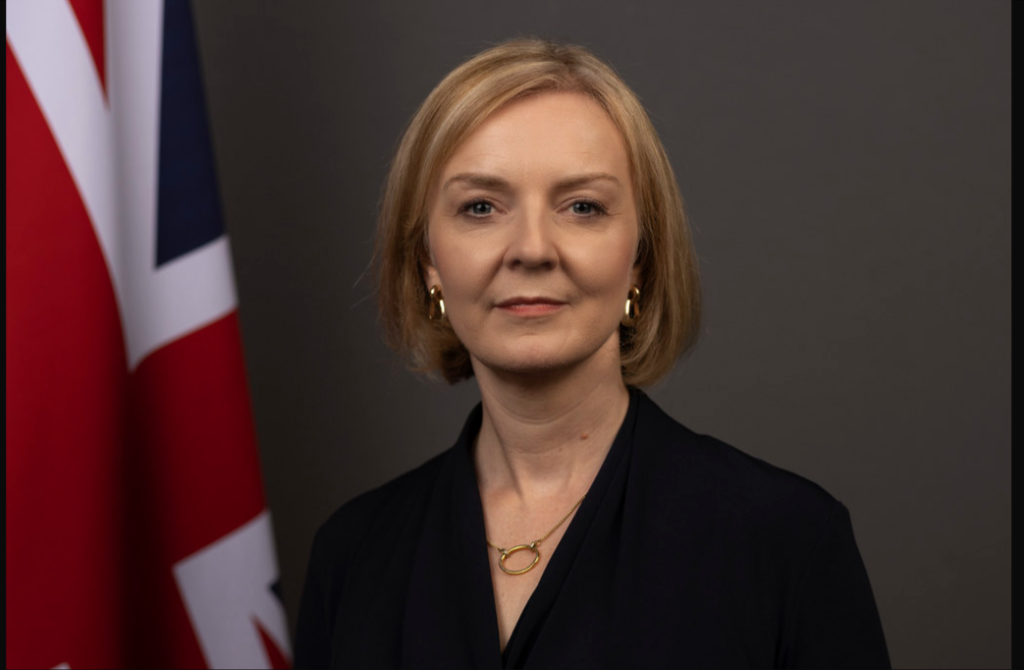
Shortest Serving UK Prime Minister, Liz Truss

Liz Truss, who came to power on September 6, has become the shortest-serving UK prime minister, who succeeded Boris Johnson. She has lots of plan and policies for India as Free Trade Government and Enhanced Trade Practices She has bold plans for trades, taxes, energy crises and growth of economy.
After becoming the UK Prime Minister, she had said about her plans that She isn’t a quitter but a Fighter and We trusted her. Later she quits , after 45 days of being appointed as PM. She delivered a statement outside 10 Downing Street for resignation.
But what made Liz Truss take this decision, to resign just after 45 Days of serving? Let’s understand this.
- Liz took the decision of resignation after she met the chairman of the 1922 Committee of backbench MPs
- She faced criticism from opposition and within her government a lot since she was elected.
- Liz was questioned over her tax- slashing policies, in this weakening economy of UK.
- I all started when opposition leader Starmer had his MPs says “Gone Gone”, as he read out the list of dropped policies of Liz which she tried to implement for UK. And was said “Why is she still here?”
- In the reply, Truss said, “She is a fighter and not a quitter, someone who is prepared to front up. I m prepared to make tough decisions. I have acted in the National interest to make sure that we have economy stability.”
- On September 23rd, Treasury Chief Kwasi Kwarteng exposed the Truss government’s vision for growth: a huge amount of tax cut worth 45 billion pounds ($50 Billion) that would create jobs and improve living standards as per Truss government. But this mini budget did not explain how did the government planned to pay for tax cuts leading investors to get worried that public borrowing would go out of control.
- Suella Braverman and Kwasi Kwarteng, both cabinet ministers under Truss, were removed from their positions prior to her resignation. While resigning due to a technical violation of government rules, Braverman sent an official document from her email account. Kwarteng resigned following the ‘mini-budget’ being disaster, which he announced later caused market volatility, devalued the currency, and raised mortgage rates.
- Liz Truss was questioned for her political judgement for slashing taxes of British top earners.
- Liz Truss in her address outside Downing Street on October 20, Truss said that she could not deliver and be directive for which she was elected on and had therefore notified King Charles III about her resignation as the Tory leader.
- Truss’s resignation has again put the responsibilities back on her opponent Rishi Sunak. While Sunak is one of the front-runners, other leaders of the Conservative Party could also replace Truss in the coming week.

Let’s look into the contenders were in race to become the next Prime Minister of UK: –
- Rishi Sunak – Sunak, who lost to Truss last month in the Conservative leadership election, continues to be the key contender to step up for the post. People are expecting him to become next UK PM and has the support from India as well.
- Jeremy Hunt – UK’s new chancellor Jeremy Hunt has moved up to one of the desirable candidates for UK Prime Minister. He is the Former health and foreign minister Hunt ripped up Truss’s proclamations, which led to some lawmakers referring to him as the ‘real prime minister’
- Penny Mordaunt – She was a former defense secretary who won praises for her performance in the parliament on October 17, when she defended the Truss government.
- Wallace, Ben – Ben Wallace, the UK’s defense secretary and a former soldier, is one of the few ministers who have emerged from the recent political turbulence with increased credibility.
- Boris Johnson – Johnson, was forced out by several scandals. Given his solid 2019 electoral directive, Johnson loyalists believe that the leader should make a comeback.
- And also, Keir Starmer was in the race of likely being PM of UK.
What is future holds for United Kingdom:-
- Liz Truss was third female Prime Minister after Thatcher, who governed from 1979 – 1990 and Theresa May, who had government from 2016-2019.
- Regardless of who replaces Liz Truss, the next British prime minister will inherit an economy doomed for the foreseeable future by rising borrowing costs, crippling energy bills, high taxes, and a lack of a growth strategy. Her successor to be chosen within a week.
- When a Conservative leader resigns, the new leader must be elected through an election, according to the BBC. The 1922 Committee is in charge of organizing the election rules. The 1922 Committee, also known as the Conservative Private Members’ Committee, is a Tory parliamentary group in the House of Commons made up of all ‘backbench MPs,’ or legislators who do not hold government office.
- Until then there is was no full clarity how new Prime Minister will be elected but the election was to be concluded by October 28. Whoever is chosen as the Tory party leader would be invited by King Charles III to become the Prime Minister.
These changes are going to make a great impact on UK-India treaties and relation.
Let us see in our next Blog, who became United Kingdom stable Prime Minister forthcoming and what will be his/her plans for UK economy growth.